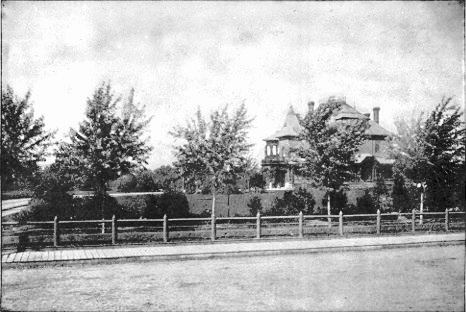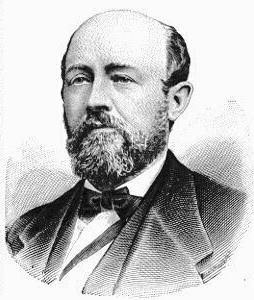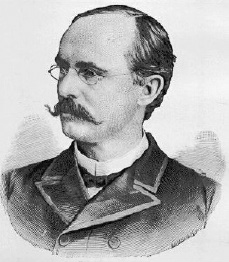|
it down, and give notice to Smith to
leave the Territory immediately under pain of being placed
in the river if he failed to do so; and that Smith did, in
fact, leave. This occurred in May, 1856. Parker also
testified that about the 1st of February, 1857, the land
office opened at Omaha, and the Claim Club passed a
resolution that no man should be permitted to pre-empt land
without the consent of that association. Furthermore, that a
committee of vigilance was appointed to see that no person
violated that resolution, and to punish and "dispose of" all
who made any effort to comply with the laws of the United
States., "Some were summarily dealt with," according to the
testimony of Mr. Parker, "and have not since been heard
of." 
RESIDENCE OF HON A. J. POPPLETON. The resolution referred to by Parker in his affidavit in Smith's case was adopted at a mass meeting on the 20th of February, 1857, and was as follows: "RESOLVED, That persons shielding themselves under the act of Congress to pre-empt a man's farm under the color of law, shall be no excuse for the offender, but he will be treated by us as any other common thief." The next
day Jacob S. Shull, who had squatted on what he believed to
be a piece of Government land - and which he claimed the
right to settle upon and improve under the pre-emption laws
- was driven off his claim by an armed mob of 150 men. They
set fire to his buildings, and destroyed everything on the
land. Had they caught him they would no doubt have killed
him. He was obliged to remain in hiding for two days. Mr.
Shull, who did not dare try to recover his claim, died
within a year after this event. Just before he died he told
his family that they would some day recover the land. This
they did at the end of a lawsuit. They have since made a
fortune out of the land, which in time became very
valuable. |
|
he consented to give up the claim about
which the controversy had arisen. It is said that Callahan
never fully recovered from this cruel treatment, and that he
died a few years afterwards. A man named Ziegler was
banished from the Territory, and condemned to death if he
should return. Ziegler was escorted to the river and sent
over to Iowa. Daniel Murphy was forced, after a severe
struggle in a lawyer's office, to relinquish his claim to a
piece of land for the promised considera-
tion of $1,000, but it is said that after he had signed the document he was given only $100. At various times, in after years, he made some attempts to recover the land, but in each instance was unsuccessful. Another Irishman was hanged to a tree until nearly dead, and when cut down he |
|||||||||
|
|
|
|

